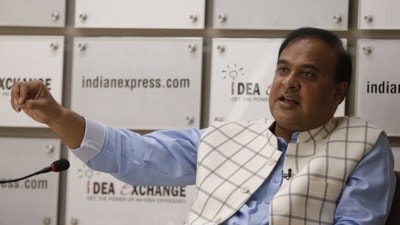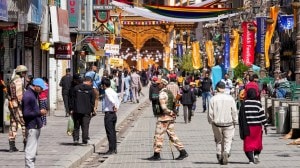Jaswant to visit Israel for `normalisation’ of ties
NEW DELHI, DECEMBER 15: Barely three weeks into the new millennium, Jaswant Singh will break new ground as India's first ever External Aff...

NEW DELHI, DECEMBER 15: Barely three weeks into the new millennium, Jaswant Singh will break new ground as India’s first ever External Affairs Minister to visit Israel.
The path-breaking visit is really a culmination of a steadily growing bilateral relationship, albeit more often than not in the shadows, since former Prime Minister P.V. Narasimha Rao allowed the formal establishment of diplomatic relations in 1992.
The central message of Singh’s visit is the “normalisation” of ties between New Delhi and Jerusalem, which even after the end of the Cold War a decade ago, seemed sometimes hostage to a Cold War mentality.
Singh’s decision to travel to Israel also comes in the wake of former enemies in the Middle East promising anew to bring peace to the region. Not only has the dialogue between Ehud Barak’s Labour government in Jerusalem and Yasser Arafat’s Palestinian Council started again but diehard antagonists Syria and Israel began their first talks in Washington today.
Significantly, Singh will be in Israel on January 20-21, within days of his tenth meeting with the US deputy secretary of state Strobe Talbott in mid-January in London.
Besides Jerusalem, Singh will go either to Gaza or Ramallah, depending upon Arafat’s itinerary at the time. On January 22, he leaves for Muscat, Oman, to attend the foreign ministers meeting of the Indian Ocean Rim states.
India’s political class has in the last five decades been wary of establishing direct relations with Israel, primarily of course because of the prevalent antagonism between the Jewish state and Palestine, a nation in exile since 1947.
In the post-independence, post-imperialist era, Arafat was not only a hero in India but also a personal friend of India’s then first family, the Nehrus and the Gandhis. When New Delhi became a front leader of the non-aligned movement, support for the Palestinian cause became synonymous with the struggle for justice and freedom.
Rapidly though, with the fall of the Berlin Wall in 1989 and soon after the disintegration of the Soviet Union in end-1991, the once-impregnable divisions that divided the world into distinct blocs seemed to suddenly look frail. The secret peace talks between the Israelis and Palestinians that culminated in the famous White House handshake between Arafat and Begin in 1993 gave another mortal blow to that framework.
Back home in India, Narasimha Rao shook the domestic establishment by establishing diplomatic relations with Jerusalem in 1992. Significantly, the BJP has always been the only party in favour of normal ties with the Jewish state.
It was the Kargil conflict that brought the Indo-Israeli relationship squarely out of the shadows and into the limelight. Principal Secretary Brajesh Mishra embarked on a secret trip to Tel Aviv, with the ostensible aim of garnering diplomatic and material support.
It is said that the bilateral defence relationship with Israel is now burgeoning in leaps and bounds, with Jerusalem promising New Delhi a great deal of sophisticated equipment, including remotely piloted vehicles, for the reconnaissance of the Line of Control.
India’s continuing dialogue with the US on nuclear and security issues may have also nudged the bilateral relationship with Israel along. Jerusalem is the largest recipient of US aid in the world and it has helped that Barak is particularly close to the White House.
It may have also helped that Barak himself, like Singh, have once been men in uniform. Asked soon after Barak won power in the summer if he intends to visit Israel, Singh had then happened to remark, “Of course. He is also a soldier.”



- 01
- 02
- 03
- 04
- 05




























